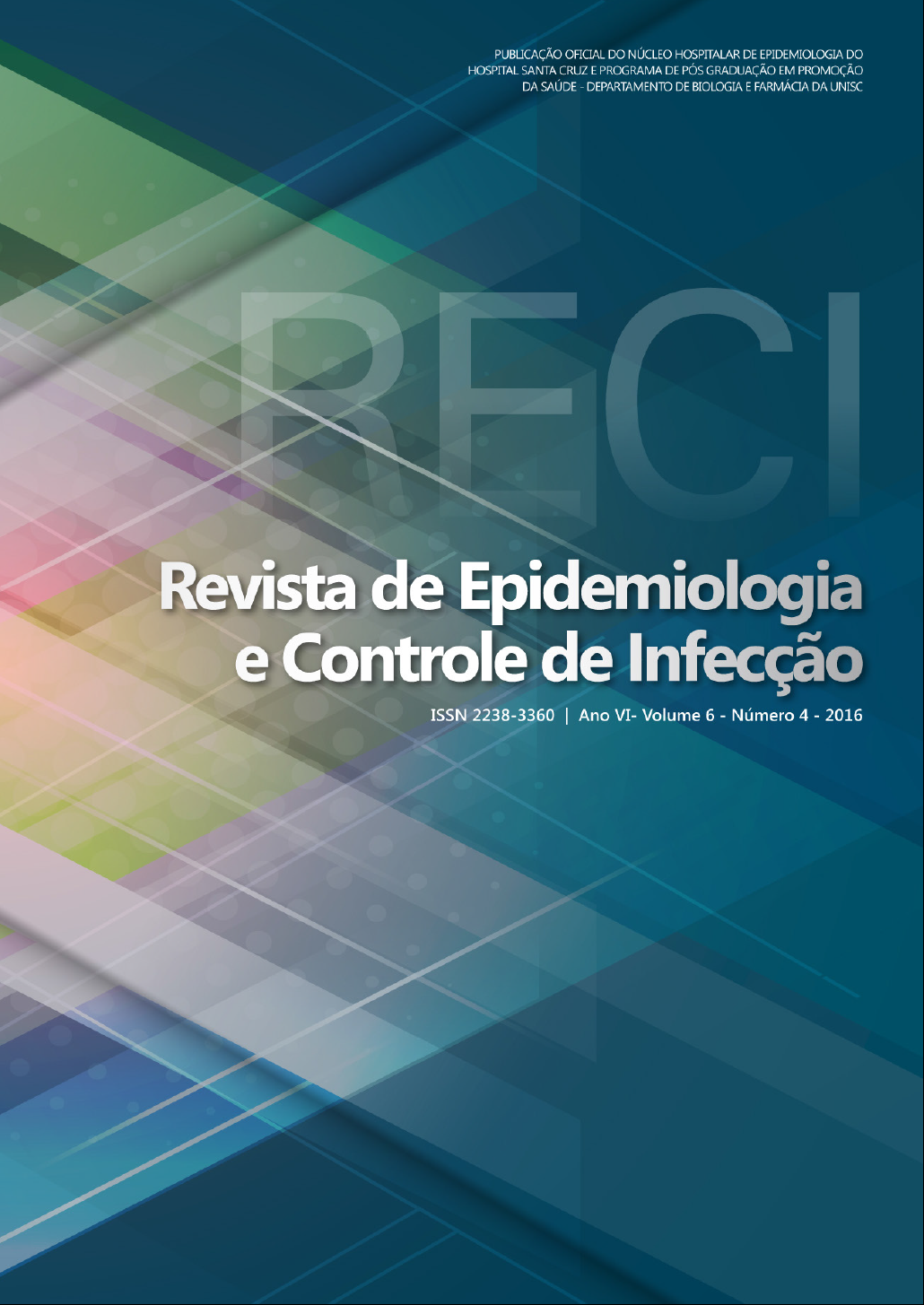Green tobacco sickness during the tobacco leaf classification period: sociodemographic and occupational profile of tobacco farmers in a city in the cuntryside of the state of Rio Grande do Sul
DOI:
https://doi.org/10.17058/reci.v6i4.8198Abstract
Background and Objectives: Green tobacco sickness is an acute intoxication, caused by the dermal absorption of nicotine from the tobacco leaf. The triad to verify the presence of the disease is described by altered cotinine levels, exposure to tobacco and manifestation of symptoms such as diarrhea, dizziness, headache, pallor, sweating, increased salivation, chills, weakness, abdominal pain, vomiting, nausea, as well as blood pressure and/or heart rate alteration. The aim of this study was to verify the occurrence of Green Tobacco Sickness (GTS) during the tobacco leaf classification period, as well as to analyze the sociodemographic and occupational profile of tobacco farmers. Methods: This is a cross-sectional study involving 52 tobacco farmers from the municipality of Candelária, in the state of Rio Grande do Sul (RS). Urine samples were randomly collected according to the sample inclusion criteria. The data were analyzed using the Statistical Package for Social Sciences (SPSS), version 23.0. Results: The study showed five cases suggestive of GTS, and that 31 farmers had altered cotinine levels during the tobacco leaf classification period, unlike previous studies that showed the presence of the disease during the harvesting period. Asymptomatic farmers with altered cotinine levels was another noteworthy finding. Conclusion: It is necessary to develop actions to monitor exposure to illnesses and occupational diseases to advance in the intersectoral actions of GTS prevention and health promotion among tobacco farmersDownloads
Downloads
Published
How to Cite
Issue
Section
License
The author must state that the paper is original (has not been published previously), not infringing any copyright or other ownership right involving third parties. Once the paper is submitted, the Journal reserves the right to make normative changes, such as spelling and grammar, in order to maintain the language standard, but respecting the author’s style. The published papers become ownership of RECI, considering that all the opinions expressed by the authors are their responsibility. Because we are an open access journal, we allow free use of articles in educational and scientific applications provided the source is cited under the Creative Commons CC-BY license.


